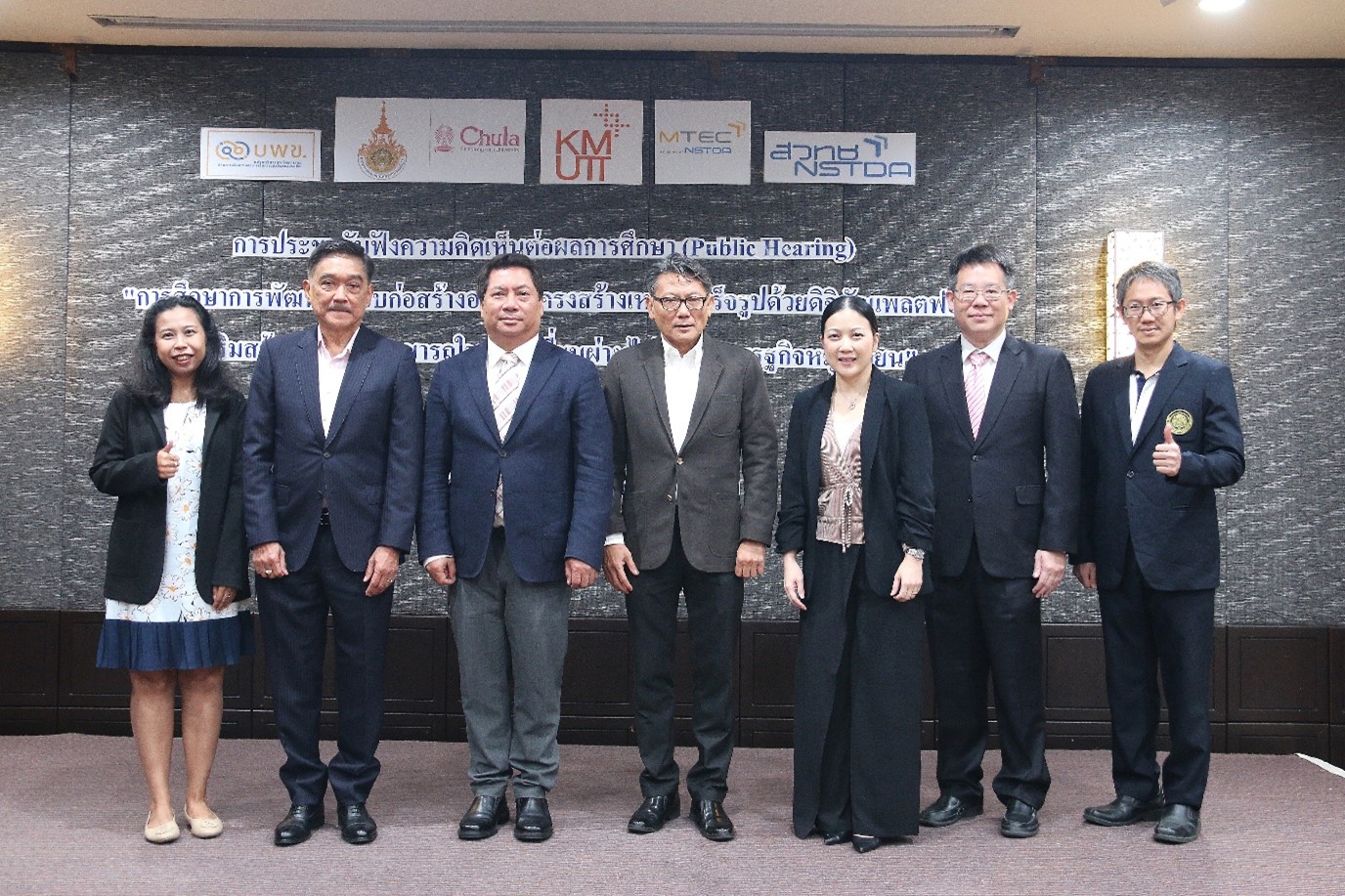
On December 17, 2024, at Century Park Hotel, Bangkok, the National Metal and Materials Technology Center (MTEC), under the National Science and Technology Development Agency (NSTDA), in collaboration with Rajamangala University of Technology Thanyaburi (RMUTT), Chulalongkorn University (CU), and King Mongkut’s University of Technology Thonburi (KMUTT), hosted a public hearing seminar to present the achievements of the “Development of Modular Steel Construction Systems Using Digital Platforms to Support the Circular Economy” project. The initiative is supported by the Program Management Unit for Competitiveness (PMUC) and Athletic Solutions Co., Ltd.

Representing PMUC, Assistant Professor Dr. Akkharawit Kanjana-Opas delivered the opening remarks. The event brought together representatives from government agencies, academic institutions, policy-making bodies, construction industry stakeholders, real estate investors, and supply chain businesses.

Dr. Nongnuch Poolsawad, Director of MTEC’s Sustainable Development Information and Technology Research Group (TIIS) and the project leader detailed the initiative’s focus on developing modular steel construction systems that promote a Circular Economy. The project emphasizes waste reduction, material reuse, and extended lifespan, aligning with Thailand’s economic and environmental development goals. It integrates Building Information Modeling (BIM) to design and manage construction information, covering five building types: detached houses, townhouses, commercial buildings, warehouses, and small retail shops. A digital imaging system was also developed to inspect structural quality, ensuring precision and reducing costs. The project aims to enhance confidence in construction quality and promote broader adoption of modular construction systems for a sustainable Circular Economy.

Dr. Vikrom Watcharakup, Executive Committee Member of the Federation of Thai Industries, emphasized the crucial role of the construction industry in national development. He highlighted how the rapid growth of construction directly affects resource consumption, pollution, construction, and demolition waste. To transition towards sustainable construction, Thailand should embrace the Bio-Circular-Green (BCG) Economy model, which integrates Bioeconomy, Green Economy, and Circular Economy principles. Applying the Circular Economy approach in construction requires a comprehensive consideration of design, materials selection, and post-demolition material management. This holistic approach balances economic growth, environmental preservation, and societal well-being, fostering long-term stability and sustainability.
Modular steel construction aligns with Circular Economy principles by enabling efficient design, rapid assembly, and material reuse and recycling after demolition. This approach optimizes resource utilization and reduces environmental impact.

The project’s success stems from a strategic focus on boosting industrial development and building an economic foundation aligned with the BCG Economy model. It’s supported by PMUC, the National Higher Education, Science, Research, and Innovation Policy Council (NXPO), and Athletic Solutions Co., Ltd. Notably, and encourages businesses to prioritize both financial returns and long-term societal sustainability.


